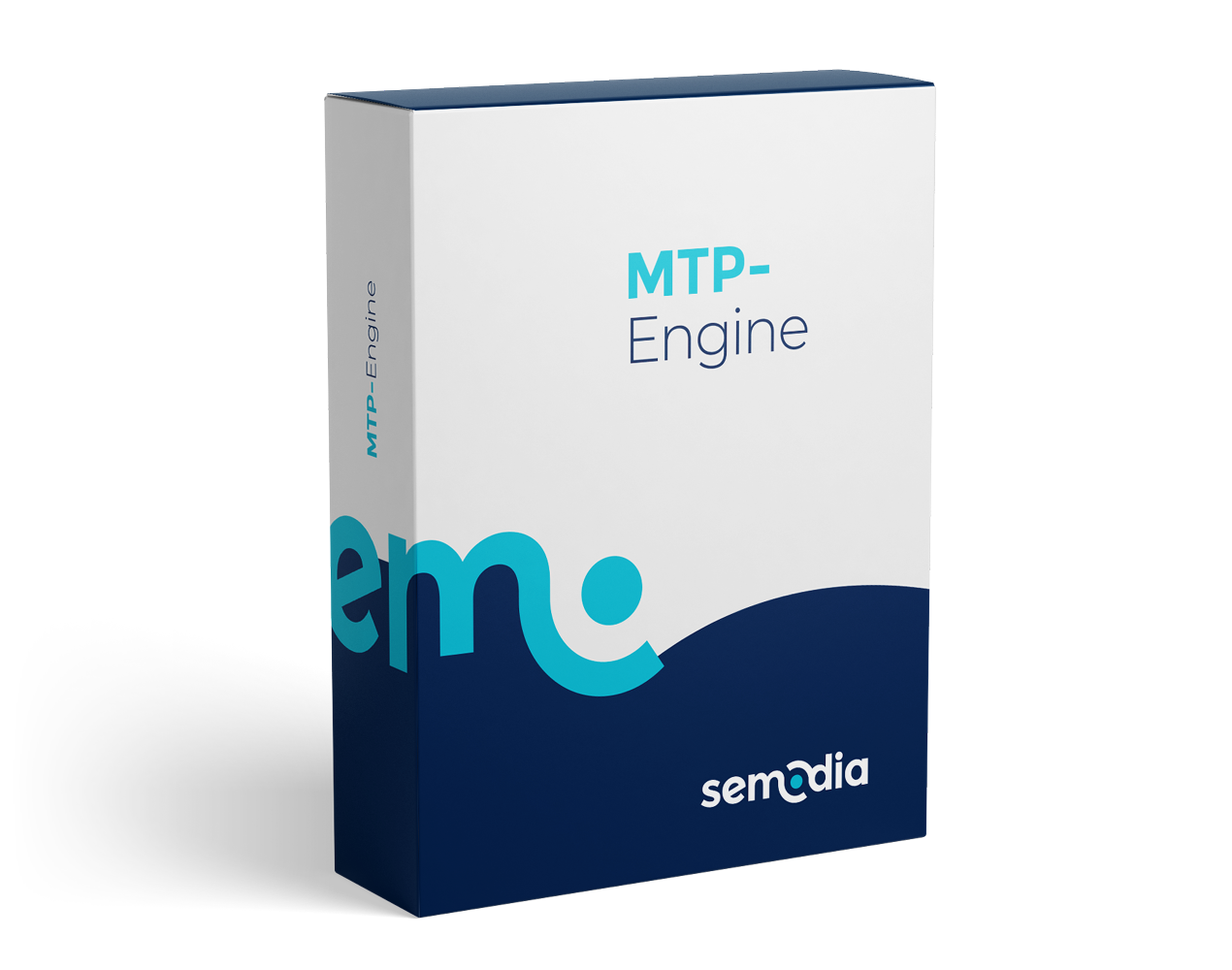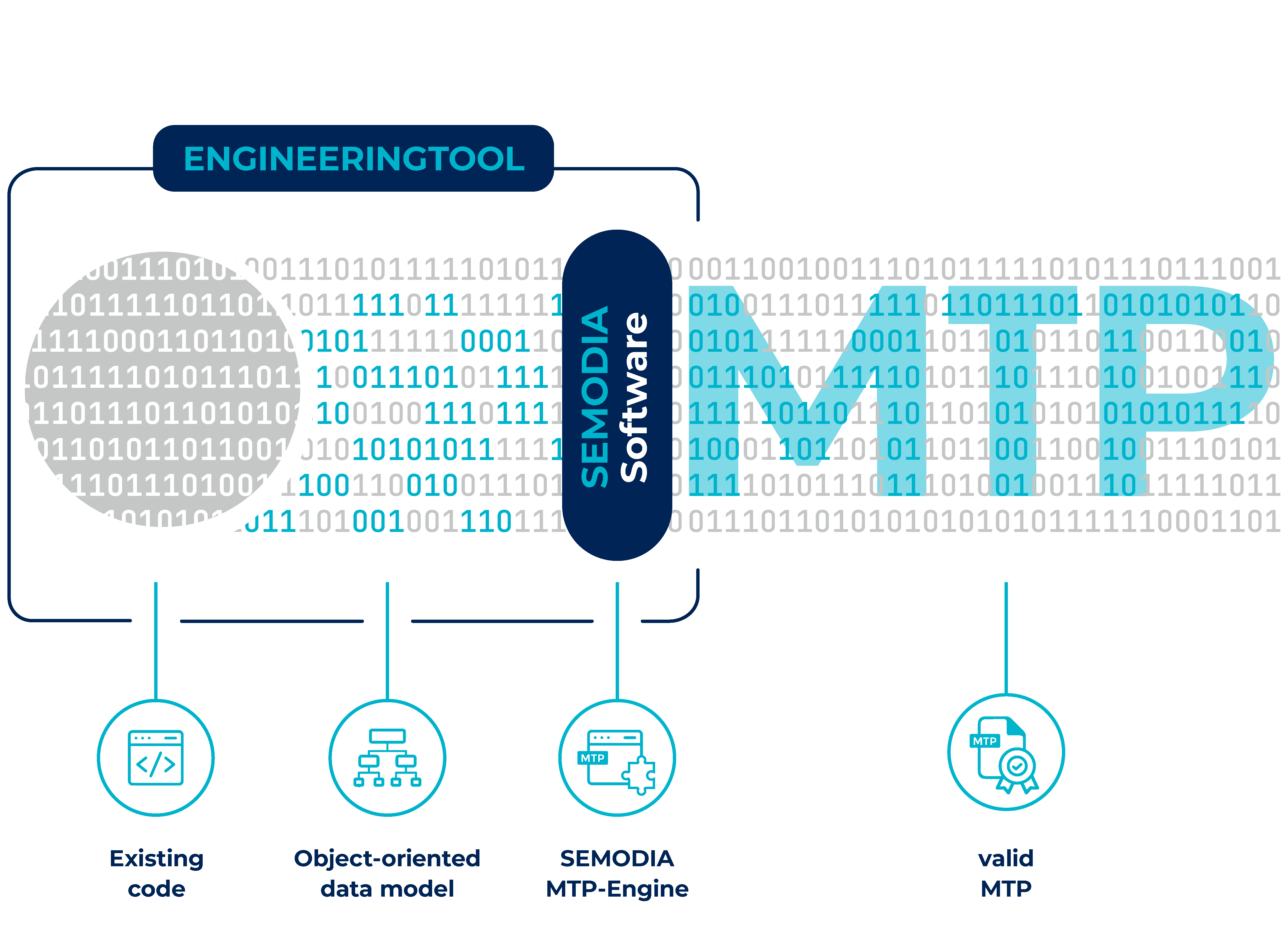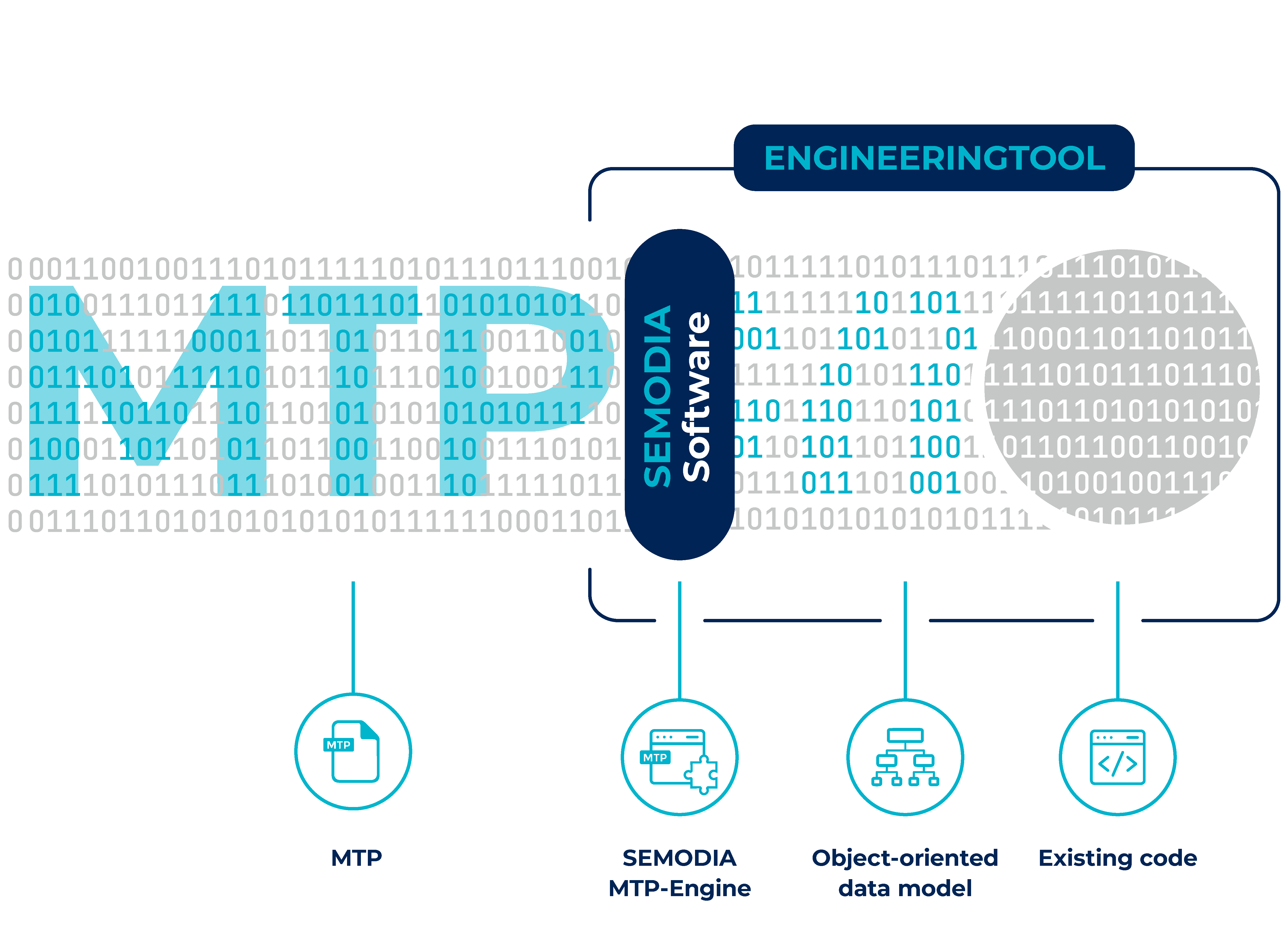MTP-Engine
Power up your tools

Expand your tools with an MTP import and export function to access new markets and customer groups.
The MTP-Engine (provided as an object-oriented API) consists of the MTP-Export and MTP-Import product variants, which can also be used together.
The MTP-Export enables the creation of valid MTPs and any MTPs can in turn be read using the MTP-Import.
These products are based on the same semantic model that represents the contents of the VDI/VDE/NAMUR 2658 standard. SEMODIA has been actively involved in shaping this standard for the process industry via the responsible committees since 2015.
Who benefits
module vendors
plant operators
engineering tool vendors
control system manufacturers
field device vendors
plant manufacturers
Your advantages
Reach new horizons
Obtain a quick and easy way into the market of modular plants and expand your product portfolio.
Always up to date
You will always have up-to-date, machine-readable access to the VDI/VDE/NAMUR 2658 standard at any time and without any maintenance effort.
Secure upgrade without a hitch
Use our MTP-Engine to create a secure interface to MTP-Export from your own tool.
Maximise value creation
Use MTP-Engine to unlock the full potential of your established engineering workflows.
How it works
- Our MTP-Engine is integrated directly into your tool without changing or disclosing existing functionalities.
- Existing information is reused and mapped to MTP using the MTP-Export function in our MTP-Engine.
- The exported MTP is in the format of a text file and is similar to a printer driver.
- All important module data is available and ready for export and use in universal form after automatic MTP generation.


- MTP-Engine is integrated directly into your tool or POL without changing or disclosing existing functionalities.
- The information scanned in via the MTP-Import function in our MTP-Engine is made available for further processing via an object-oriented interface.
- In the case of self-generated and externally generated MTPs – even from non-valid MTPs – as much data as possible can be extracted or errors can be displayed.
Technical details
Export Library
The object-oriented API can be used to integrate our MTP-Engine directly into engineering tools to extend them with MTP-Export functionality.
Our use of NET Standard 2.0.0 ensures platform independence, which makes our MTP-Engine compatible with all .NET core applications and .NET framework applications from version 4.6.1 onwards. Abstractions of the MTP structure enable quick entry into MTP development. The existing information model of the engineering tool can be reused, and only the data repository needs to be mapped to the MTP-Engine interface.
The result is a VDI/VDE/NAMUR 2658 compliant MTP, which is delivered to the operator with the associated module and can be imported into the process control level systems to enable communication with the controller for the module.
Import Library
The object-oriented API can be used to integrate our MTP-Engine directly into process control or engineering tools to extend them with MTP-Import functionality.
Our use of NET Standard 2.0.0 ensures platform independence, which makes our MTP-Engine compatible with all .NET core applications and .NET framework applications from version 4.6.1 onwards. Abstractions of the MTP structure enable quick entry into MTP development and integrated validation of the integrated MTPs always ensures that they are compliant with standards. The existing information model contained in the POL or engineering tool can be reused, and the MTP-Engine only needs to be mapped to the relevant data repository.
The integrated data can then be further processed to create a visualisation or to orchestrate a production line for one of your customers.
Do you want to know how you can benefit from our MTP-Engine?
We are looking forward to your contact request and we will contact you immediatly.
